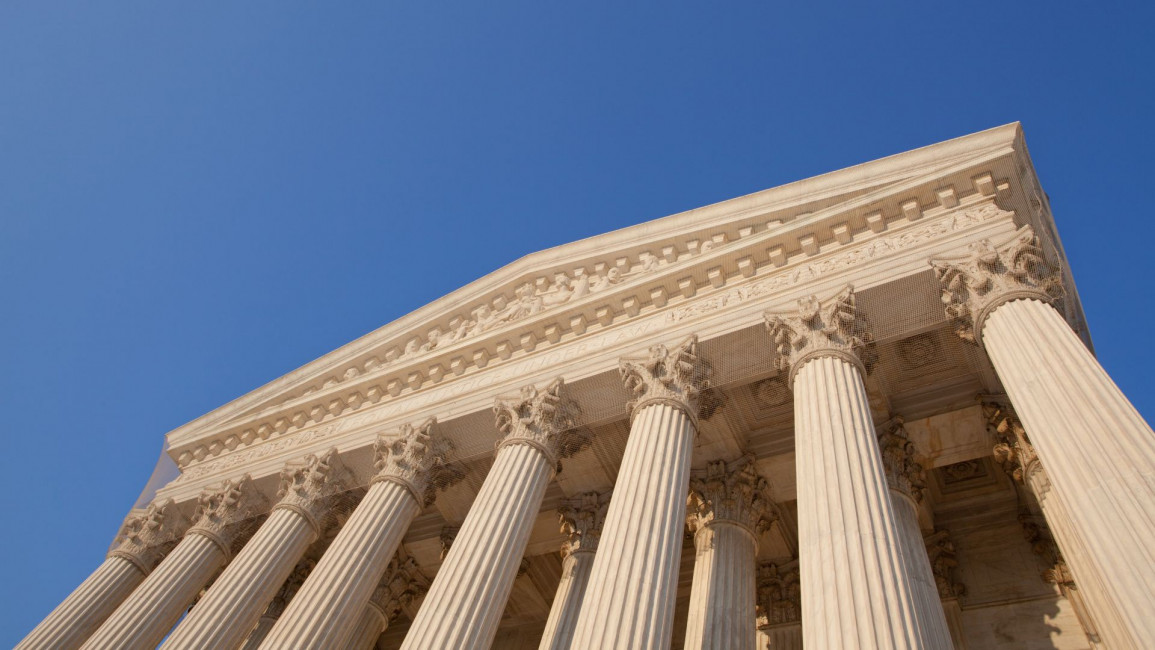US civil liberties union heads to court to protect BDS freedom
A civil liberties advocacy group announced plans to head to the US Supreme Court after a state appeals court ruled this week that boycotts, historically safeguarded under the First Amendment to the US Constitution's guarantee of freedom of expression, will no longer be constitutionally protected.
The ruling, which comes out of a long-fought case in the state of Arkansas, will have major implications not only for the Palestinian Boycott, Divestment and Sanctions (BDS) movement, but for freedom of expression in general.
On Wednesday, the Eighth Circuit Court of Appeals upheld an Arkansas law that targets the boycotting of Israel, saying it does not infringe on free speech, as it serves "a purely commercial purpose" based on their relatively narrow interpretation of the law.
The decision is based on a 2017 case of the Arkansas Times newspaper, in which the CEO claimed they had lost advertising revenue from a university for refusing to sign an agreement to not boycott Israel.
The case has since been used as a precedent for other states to override anti-BDS state laws as unconstitutional.
The American Civil Liberties Union (ACLU), which represented the newspaper in the case, announced its plans this week to take the case to the Supreme Court, which civil rights advocates say could have major implications for free speech.
"The court’s conclusion that politically-motivated consumer boycotts are not protected by the First Amendment misreads Supreme Court precedent," Brian Hauss, the ACLU lawyer with the case, said according to a Twitter thread by Just Vision, a media company that made a documentary about BDS focusing on the Arkansas case.
The implications of this ruling could be far-reaching, given the general nature of the first amendment upon which so much of the laws regarding the protection of personal freedom in the US are based.
"I think that certainly folks need to be concerned," Suzanne Adely, president of the National Lawyers’ Guild and a member of the US Palestinian Community Network, told The New Arab.
"It’s a very dangerous decision – not only for supporters of Palestine, but it should be a concern for any kind of principled political movements that try to challenge economic power. [Boycotting] is a tactic that many movements are engaged in," she said.
Though this law specifically targets BDS, Adely and many others see it as part of a broader fight that could affect other movements.
For example, the fossil fuel industry has in recent years used the anti-BDS model to crack down on activism, getting behind a 2021 bill in Texas that would require companies to pledge that they would not boycott fossil fuels.
"What is essentially happening is the mandating of businesses with public contracts to sign loyalty oaths that fall in line with an ideology," said Adely.
"They’re testing how to repress other movements. It’s going to be broader in its impact."



